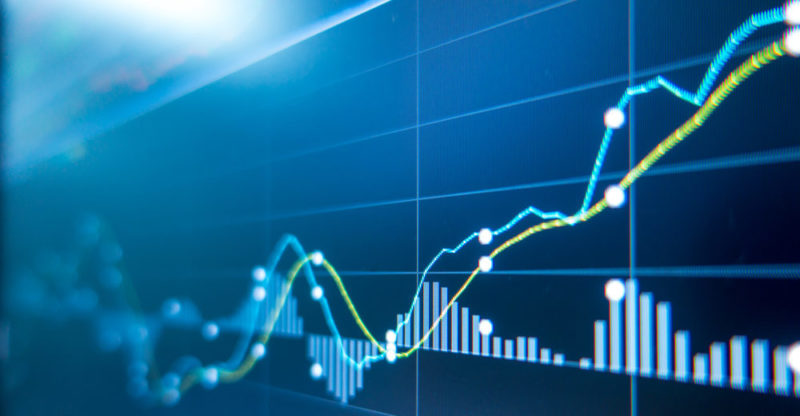We explain what the economy is, how it originated and what it is for. In addition, what are its general characteristics, approaches and criticisms.
What is the economy?
When we speak of Economics or Economic Sciences, we refer to a social science that studies the ways in which societies are organized to satisfy their material and immaterial needs . This organization is based on cycles of production, distribution and exchange of those consumer goods that they require.
This means that Economics is the study of the strategies in which a society acquires or manufactures its consumer goods . In addition, it analyzes in what ways and to what extent it can satisfy the demand for these goods, whether tangible or intangible.
The term Economy is also often used as a synonym for economic performance or economic activity , that is, to refer to the way in which economic and financial events occur in a country, a company or a person .
Origin of the economy

The Economy was in the interests of ancient civilizations since ancient times.
This discipline is observed both in classical Greco-Roman cultures and in distant Persia or China .
During the Middle Ages , it did not exist as a separate study doctrine.
However, the specialization of certain economic forms contributed to its development .
This became evident when economic nationalism (later christened mercantilism ) governed the destiny of the major expanding European empires.
However, it was not until 1776 that it emerged as a field of study in its own right . This will be due to the publication of the treatise The Wealth of Nations by the Scotsman Adam Smith, the first large-scale economics treatise.
Various schools of economic thought
Theories that emerged in Smith's time are often regarded today as the classical approach to economics. Throughout almost three centuries of history, however, other thinkers have emerged who have founded their own school of economic thought , such as:
- The Marxist School . Founded on the thought of Karl Marx and especially on his work Capital (1867), in which he explained how the ownership of the means of production defined societies throughout history , and explained the economic distribution through class struggle.
- The Keynesian school. Based on the studies of the British John Maynard Keynes, it produced a true revolution within the economy, proposing that the best way out of an economic crisis was interventionism, that is, taking measures by the State . Only in this way could a solution be found to the problem of economic cycles: stimulating demand and regulating supply as needed.
- The School of Liberalism . Continuation of the classic precepts of Smith, this school is summarized in the doctrine of " Laissez-faire " or "let it be done", proposing the minimum intervention of the State in the development of the markets . It is the doctrine that defends the greatest possible economic freedom.
What is the economy for?

Economics can be applied to a very wide range of situations and activities . For example, it can be used to understand the pricing of goods and services available in a society, the behavior of financial markets, and their impact on society.
In addition, the Economy allows to study and anticipate international trade , or guide the intervention of the State in internal markets or in the distribution of income. It can also provide data that improve the methods of combating poverty , or even the theories of growth and economic cycles.
Object of study of the economy
The object of study of the Economy can be summarized in three fundamental axes:
- The processes of extraction, production, distribution, exchange and consumption of goods and services required by a society.
- The possible models of satisfaction of human needs (infinite) from the set of available resources (finite).
- The financial way in which people and societies survive, trade, prosper and operate.
Approaches to economics

The economic analysis of a society or community can be very diverse. Depending on the approach, some or other variables will be taken into account. Among the main perspectives of the economy we have:
- Theoretical economics and empirical economics. The first seeks to define rational models of economic functioning to balance the different societies, while the second confirms or refutes those models by applying them or by reviewing the economic history of nations.
- Microeconomics and Macroeconomics . The first refers to the choices of economic agents (individuals, companies and governments ) in the face of economic exchange; while the second contemplates the international, if not global, economic system at a panoramic level.
- Normative economics and positive economics. The first contemplates the duty to be of the economy, pursuing its possible rules; the second studies economic behavior as a living and changing matter.
- Orthodox and heterodox economics. This difference is of an academic nature: the first tries to understand the economy through the concepts of rationality-individualism-equilibrium and is more commonly taught in universities. The second, on the other hand, encompasses different and heterogeneous currents of economic analysis based on the concepts of institutions-history-social structure.
Offer and demand

A key and fundamental concept in contemporary economic understanding is that of supply and demand. The "supply" is the amount of production available to satisfy the needs of the population . The "demand" is precisely the total need for said goods or items by society.
The ratio between supply and demand produces numerous economic consequences . For example, when the supply of a good is too low for the levels of demand, there is a shortage and an increase in prices. On the contrary, when supply far exceeds demand, the item depreciates.
Why is economics important?
The economic study is of the utmost importance because it deals with the great dilemmas of any social system . Among them are how to satisfy our needs, how to carry out the necessary exchanges, how to reward work . Even if the future brings very different societies, these problems will remain central.
Economic systems

There are various possible economic systems, each of which contemplates the rules of the economy, such as state intervention or the presence of private property . This can be summed up as:
- Capitalist or liberal economies . Private property is held as a fundamental right and the minimum possible intervention of the State is preferred, allowing supply and demand to regulate the market by their own laws .
- Socialist or controlled economies . The State intervenes to lead the economy and does not leave things to the “invisible hand” of the market. In them, private property tends to decrease in favor of social or communal property, and regulations are frequent and constant.
- mixed economies. Those in which a middle path is undertaken, with economic freedoms but certain State interventions, to redirect the economy when necessary.
What sciences does economics use?
Economic study is by definition multidisciplinary . Among the sciences and disciplines from which it draws are psychology , philosophy , history, sociology , politics , law and above all mathematics , statistics and administration .
Why is the economy criticized?
Since the 19th century, the precepts proposed by the economy are not taken as absolute truths but are openly criticized. For example, Thomas Carlyle called it “Gloomy Science” , because at that time he only predicted hunger and misery for the future of humanity .
In reality, economic study is something independent of the doctrines that are executed in its name . However, when a theoretical precept is presented as an undisputed truth, it is natural that criticism of it extends to the entire discipline.
The above content published at Collaborative Research Group is for informational and educational purposes only and has been developed by referring reliable sources and recommendations from technology experts. We do not have any contact with official entities nor do we intend to replace the information that they emit.
Veronica is a culture reporter at Collaborative Research Group, where she writes about food, fitness, weird stuff on the internet, and, well, just about anything else. She has also covered technology news and has a penchant for smartphone stories. .
Leave a reply
Your email address will not be published. Required fields are marked *Recent post

Sport: What Is It, Types, Risks, Features, Characteristics and Examples

Dogs: Emergence, Features, Characteristics, Feeding and Breeds

Story: Definition, Elements, Structure, Features and Characteristics

